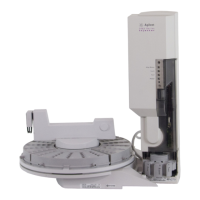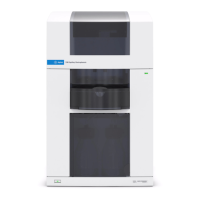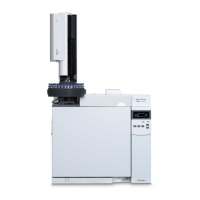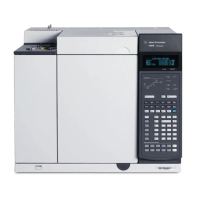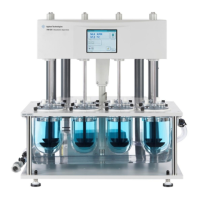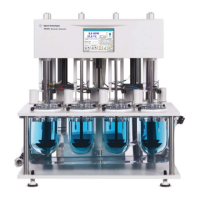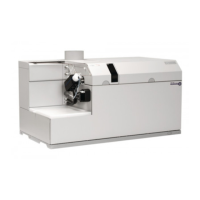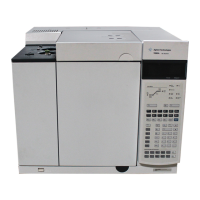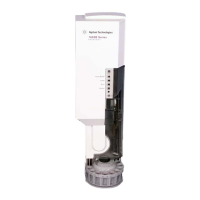General Troubleshooting 2
Troubleshooting and Maintenance Manual 45
Air Leaks
Air leaks are a problem for any instrument that requires a vacuum to operate.
Leaks are generally caused by vacuum seals that are damaged or not fastened
correctly. Symptoms of leaks include:
• Higher than normal analyzer chamber pressure or foreline pressure
• Higher than normal background
• Peaks characteristic of air (m/z 18, 28, 32, and 44 or m/z 14 and 16)
• Poor sensitivity
• Low relative abundance of m/z 502 (this varies with the tune program used)
Leaks can occur in either the GC or the MS. The most likely point for an air
leak is a seal you recently opened.
In the GC, most leaks occur in:
• GC inlet septum
• GC inlet column nut
• Broken or cracked capillary column
Leaks can occur in many more places in the MS:
• GC/MS interface column nut
• Side plate O-rings (all the way around)
• Vent valve O-ring
• Calibration valve
• GC/MS interface O-ring (where the interface attaches to the analyzer
chamber)
• End plate O-ring
• Turbo pump O-rings
• Collision cell cover O-ring
